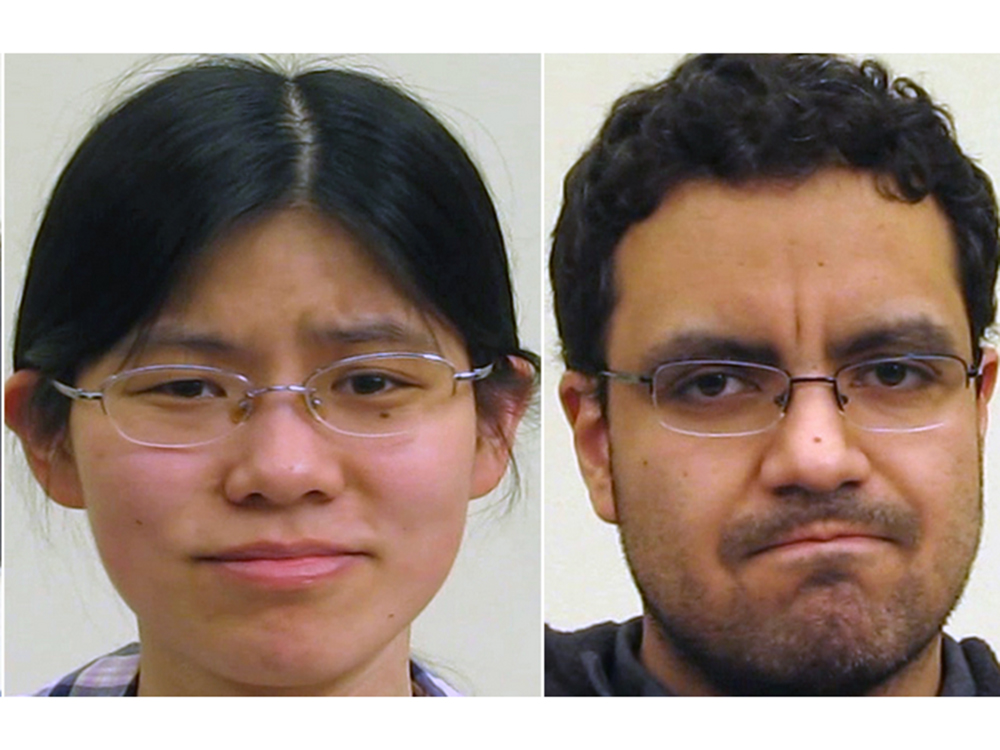Scientists Discover Universal ‘Disapproval Face' Actually Exists
And you’re definitely going to recognise it…

Celebrity news, beauty, fashion advice, and fascinating features, delivered straight to your inbox!
You are now subscribed
Your newsletter sign-up was successful
And you’re definitely going to recognise it…
Ever felt totally unimpressed by something and wrinkled up your nose in disgust - only to hear your best friend/colleague/total stranger say, 'Aww, don’t pull that face' (presumably while tutting and raising their eyebrows at you)? Well, turns out you've got nothing to be concerned about – in fact, looking unimpressed doesn't mean you need to work on your grinning technique at all. Instead, it's officially a sign that you're an excellent communicator, and scientists have even called this expression of disapproval ‘Not Face’. Yep, move over Resting Bitch Face – there’s a new judge-y look in town, and everyone knows how to interpret this one, say researchers at Ohio State University, whose results were recently published in the journal Cognition. The team discovered the ‘Not Face’ – think furrowed brow in anger, slightly raised chin in disgust and lips pressed together in contempt (yes, we’ve all seen that face…) – after filming 158 college students, who spoke English, Spanish, Mandarin Chinese or American Sign Language, conversing with someone behind the camera. Researchers then analysed the footage, searching out expressions that accompanied negative statements, such as 'that’s not a good idea' and 'they should not do that', before tagging images to identify key facial movements before computer algorithms processed thousands of frames. The result? A very clear, common expression of disagreement that came up again and again and was understood across a variety of cultures – a natural instinct that came as quickly as the sentence was forming (see – it’s not our fault if we look that way, ahem…).
In fact, the scientists also found that those using American Sign Language were sometimes seen to form the ‘Not Face’ instead of signing the words 'I disagree' at all. 'To our knowledge, this is the first evidence that the facial expressions we use to communicate negative moral judgement have been compounded into a unique, universal part of language,' says Aleix Martinez, a cognitive scientist who co-authored the study at Ohio State University. The focus on identifying negative expressions goes back to evolution and links to Charles Darwin’s belief that the ability to communicate danger or aggression was key to human survival before we developed the ability to talk, says Martinez. So the team suspected that if there was going to be a universal expression of emotion, then disapproval or disagreement would be the easiest to identify. So what about studying and identifying key positive expressions? 'That will likely take decades,' Martinez says. 'Most expressions don’t stand out as much as the ‘Not Face’.' You’re telling us – whether we’re passive-aggressively staring at the person clipping their nails on the train, scowling at the supermarket queue-jumper who’s taking serious liberties, or reading obnoxious comments on Twitter, we’re big fans of the ‘Not Face’ – even if the receiver might not be…
Celebrity news, beauty, fashion advice, and fascinating features, delivered straight to your inbox!
The leading destination for fashion, beauty, shopping and finger-on-the-pulse views on the latest issues. Marie Claire's travel content helps you delight in discovering new destinations around the globe, offering a unique – and sometimes unchartered – travel experience. From new hotel openings to the destinations tipped to take over our travel calendars, this iconic name has it covered.